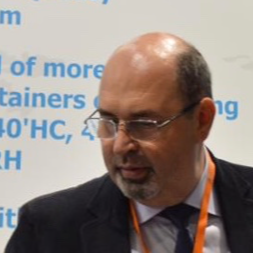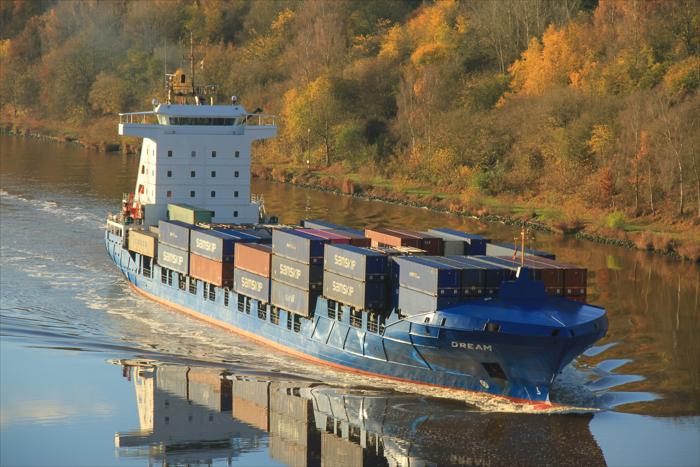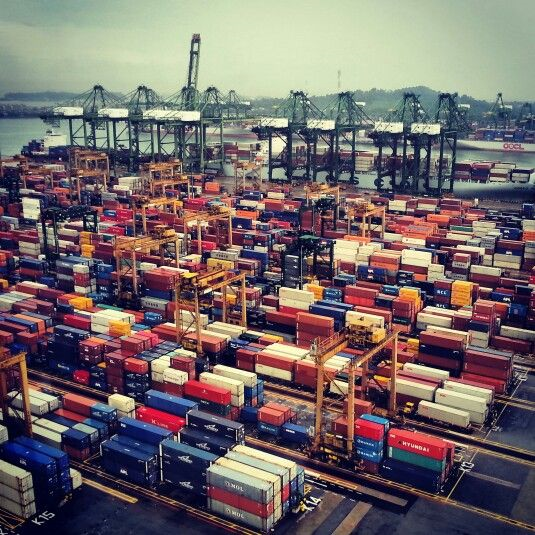Shipping lines monopoly may be a tough nut to crack.
A US House panel is considering a bill that would remove the antitrust immunity currently enjoyed by ocean carriers under the Shipping Act of 1984 as a response to concerns over the consolidation of the container shipping industry and the impact on competition, freight rates, and service quality. To increase competition, FMC proposed to prevent ocean carriers from jointly operating vessel sharing agreements (VSAs). The shipping companies expressed their protests immediately claiming that if it happens, this move would lead to higher costs and reduced service levels for shippers. They believe that VSAs provide greater flexibility and enable them to offer more frequent services to customers at a lower cost.
As contract negotiations between shippers and shipping lines stall, more shippers are being forced to turn to spot rates to secure transport capacity, resulting in higher costs and reduced predictability. The situation is being attributed to the ongoing disruption to global supply chains. Reportedly, shippers are taking longer to commit to contracts amid falling rates. Nevertheless, Maersk reports the contrary, that the situation with the supply chain begins to show signs of improvement thanks to increased port productivity, greater reliability in container shipping, and the return of more regular vessel schedules. Despite the fragile state of things, companies are working to adapt to the new normal, including by diversifying their supply chains, increasing transparency and collaboration, and investing in technology and automation to improve efficiency and resilience.
Routes & services
- CMA CGM has added the Indian Subcontinent to its list of destinations that will be subject to a congestion surcharge from Mersin, Turkey. The surcharge of 100$ per dry container is aimed at offsetting the increased costs caused by congestion and delays at the port of Mersin.
- From April 10, CMA CGM will add a 100$ surcharge to 20' dry boxes with a container gross weight equal to or over 16 tons from the port of Jeddah in Saudi Arabia to North Africa and Morocco.
- Metrans is expanding its terminal network along the Hungary-Serbia corridor by acquiring 51% stake in railway company Adria Rail and building two new terminals in southern Hungary.
- PIL is expanding its intermodal transport services in China by integrating a new barge service between the ports of Shanghai and Nanjing. The move is part of PIL's efforts to increase the efficiency and sustainability of its supply chain operations in the region.
Other
- Alibaba Group has announced plans to restructure its business into six separate entities in a move aimed at increasing transparency and compliance. The restructuring comes as founder Jack Ma returns to China after an extended absence, amid heightened regulatory scrutiny of the country's technology sector.
- CMA CGM, COSCO, and Hapag-Lloyd - are reportedly planning to place orders for new containerships as demand continues to outstrip supply. The move is seen as a bid to secure future capacity and maintain their market position in the face of ongoing disruption to global supply chains. With this strategy, CMA CGM has started to dominate the container sale and purchase scene.
- The US Environmental Protection Agency has reached an agreement with the state of California to phase out the use of diesel-powered trucks and buses in the state by 2045.
- US lawmakers have reintroduced the Truck Parking Safety Improvement Act, which aims to provide funding for the development of new truck parking facilities and address the shortage of safe and secure parking options for truck drivers. The move is seen as a bid to improve the safety and well-being of truckers and reduce the incidence of accidents and cargo theft.
- The German government has announced plans to double the country's truck tolls from 2024 and invest billions in railway infrastructure as part of efforts to reduce emissions and improve transport sustainability.
- Poseidon Containers, a shipping container lessor, has completed its $1.1 billion acquisition of Atlas Corp's boxship fleet. It is a major step in Poseidon's ongoing expansion strategy.
These are only several changes that occurred in more than 250 bn freight rates across 25 million routes with more than 1 million market players. Want to share some news about your company, services, and routes? Just post them on MAXMODAL, a multimodal network that digitally connects routes and rates worldwide to automate sales and operations across container transportation & logistics industry. Join to innovate.


Rail freight traffic between China and Kazakhstan will be redirected through the Altynkol-Khorgos border crossing. Most of the affected traffic will concern cargo between China and Central Asia and, specifically, Uzbekistan, Turkmenistan, Kyrgyzstan, and Tajikistan. The Alashankou border crossing is still running for trains between China and Europe and Russia and for trains destined to Kazakhstan.
The traffic restriction is due to the fact that the Alashankou-Dostyk border crossing will be partially closed for construction work to double the track capacity. The traffic restriction will be effective as of 1 April. As Kazakhstan’s national railway company Kazakhstan Temir Joly (KTZ) pointed out, works will be carried out on both sides of the border crossing. China will upgrade the section between Jinghe and Alashankou, while Kazakhstan will take care of the stretch between Dostyk and Moyynty.
“Today, the share of traffic along the Dostyk-Alashankou junction in the total volume in Central Asia does not exceed per cent”, KTZ added. The company also pointed out that transiting through the Altynkol-Khorgos border crossing is 10-15 per cent cheaper and 500 kilometres shorter than via Dostyk-Alashankou. These decisions were announced at a meeting of the Organisation for Co-operation between Railways (OSJD) held in Warsaw on 21 March.
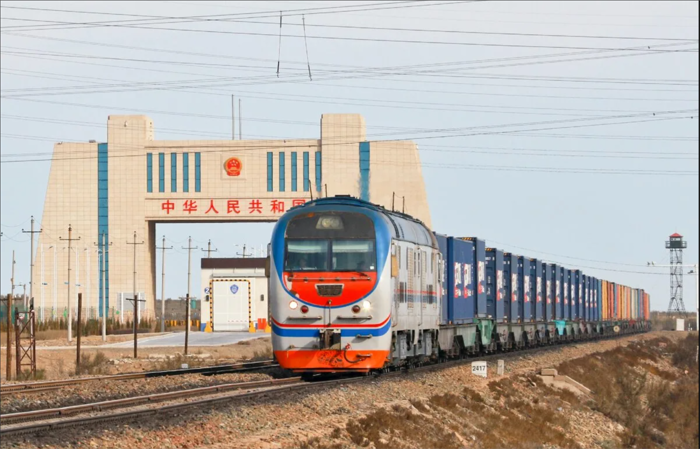
Some liner services are reported to have full ships again, container spot rates have stabilised, the charter market is bullish and ocean carriers are back at shipyards ordering new tonnage.
It seems the week has started positively for carriers and shipowners, with ‘green shoots’ of a recovery starting to emerge.
Today’s Ningbo Containerized Freight Index (NCFI) commentary reports that during the past week, container spot rates increased on 15 of the 21 export routes it tracks from the Chinese port.
For instance, on the key Asia to Europe tradelanes, it says “some voyages sailed with full loads”, and that carriers had “pushed up market rates for April voyages”.
The return in demand across their networks has prompted carriers to go back into the charter market to secure more tonnage, thus firming-up rates and extending time-charter periods. Indeed, both Braemar and Maersk Broker are seeing more activity, which is leading to increased daily hire rates.
“The activity level continues to be high which has now led to increasing charter rates for specific segments and a 12-month period is becoming the new normal,” said Braemar, echoed by container market analysts at Maersk Broker who added: “Prompt tonnage across all segments is very scarce, and we expect time-charter rates to continue their firming trend and average periods to carry on rising.”
The shipbrokers noted that modern tonnage was “attracting healthy premiums” and added: “While a few clouds remain on the horizon, the economic outlook is brightening and a general sense of longer-term optimism is slowly creeping into the market.”
Meanwhile, brokers have told CMA CGM had taken over from MSC as “the most aggressive carrier” in snapping up ships as soon as they become open. It has been linked with more than 20% of all fixtures concluded so far this year.
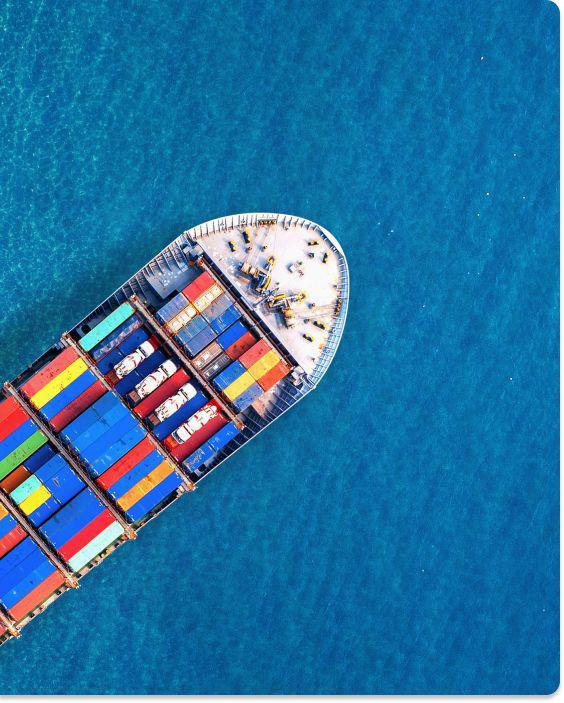
While some ocean trade lanes are stabilizing, the transatlantic rates are still declining, and this trend is expected to continue as the market remains oversupplied with vessels. In the meantime, retailers are warning of challenging orderbooks because of high inventory levels, particularly in the United States, where inventory-to-sales ratios remain near record highs and supply chain disruptions continue to impact the availability of goods, leading to a drop in sales. There is too much inventory in Europe as well.
West Coast ports in the United States are suffering as container imports have plunged by 37% in February 2023 compared to last year, with analysts attributing the decline to a combination of supply chain disruptions, factory closures, and weaker consumer demand, leading to a decrease in volumes, higher inventories, and a potential ripple effect on other sectors of the economy.
Consequently, Maersk decides to idle more ships, citing low demand and severe congestion at ports as the main reasons for reducing its capacity. In contrast, MSC has chosen a different strategy. The company has sought to redeploy more of its surplus tonnage to other routes or new services which may be a better approach in the long-run.
Hot topic
- The strike in the Port of Hamburg has led to the Port’s closure for 48 hours. Overall, the strike action has caused a backlog of vessels waiting to enter the port, bringing significant disruptions to supply chains.
- The rail strike in Finland has ended after a new collective agreement was reached. While it lasted, the strike had led to significant disruptions to rail freight transport in the country, with cargo shipments delayed or rerouted to other modes of transport.
Routes & services
- China's Belt and Road Initiative is expanding its rail network with the addition of Shenyang as a new rail hub for trade with Russia and Europe. Shenyang's central location in China and its existing transport infrastructure make it an ideal location for the consolidation and distribution of goods between Asia and Europe.
- China and Russia are collaborating to develop new rail and river trade routes, with the opening of a new bridge across the Amur River linking Mohe, China’s northernmost city, with the town of Dzhalinda in the republic of Sakha on Russia’s north-east border. The project is part of China's Belt and Road Initiative and will enhance trade relations between the two countries by providing a more direct and efficient route for the transportation of goods.
- Despite facing difficulties in finding enough cargo to fill their ships, container lines are planning to proceed with a modest increase in shipping rates for goods shipped from India to the United States and Canada. MSC, CMA CGM, and Hapag-Lloyd have agreed to coordinate their rate increases, which will amount to a $500 per TEU hike, starting from March 29th.
- Italy will improve its Alessandria Smistamento rail terminal to enhance the intermodal connections on the Rhine-Alpine corridor. The total investment for this project will be 75 million euros.
- MSC has added a new vessel, the MSC ScanBaltic, to its USA route, which will call at the Jaxport port in Jacksonville, Florida. This move represents the latest investment by MSC in the port and underscores Jaxport's strategic importance in the company's global network. The new rotation will include calls at Klaipeda, Gdynia, Goteborg, Bremerhaven, Felixstowe, Antwerp, Le Havre, New York, Philadelphia, Norfolk, Jacksonville, and then back to Klaipeda.
- ONE has updated its service from Singapore to Yangon, Myanmar. From April 4, the rotation will be Yangon (MIP) – Singapore – Yangon (AWPT) – Singapore.
Other
- The EU has approved a new law that will gradually reduce the use of high-carbon fuels in shipping by imposing stricter limits on sulfur emissions from marine fuels. It will require the use of low-sulfur fuels or the installation of exhaust gas cleaning systems, which remove sulfur from the emissions before they are released into the air.The law is part of the EU's broader strategy to decarbonize the shipping industry and achieve net-zero emissions by 2050.
- Knight-Swift Transportation Holdings has acquired US Xpress, a leading privately-owned trucking company in the US, for $2.48bn. The deal will help Knight-Swift to increase its market share and expand its reach in the US trucking industry. The acquisition will create one of the largest trucking companies in North America.
- ONE has opened a new office in Mombasa, Kenya, which will serve as the center for its commercial activities in the East African region.
These are only several changes that occurred in more than 250 bn freight rates across 25 million routes with more than 1 million market players. Want to share some news about your company, services, and routes? Just post them on MAXMODAL, a multimodal network that digitally connects routes and rates worldwide to automate sales and operations across container transportation & logistics industry. Join to innovate.

A rail strike in Germany on Monday is expected to cause delays and rail freight disruptions, with freight forwarders and shippers calling for flexibility on timings to help the movement of goods, with more disruptions in France also expected.
The latest action follows a port pilots’ strike, which ended this morning, and disruption in France as demonstrators protest against the president’s plan to extend the pensionable age.
Stefan Genth, CEO of the HDE retail association, called on the German government to lift the Sunday driving ban this weekend to allow logistics firms to bring forward some shipments and avoid “supply chaos”.
Leader of the EVG union Martin Burkert said industrial action was “a sharp sword that we also handle very responsibly”.
Pointing to the fact that Germany has few strike days compared with other countries, Mr Burkert said the dispute pursued by EVG and the Ver.di union centred on demands for pay and collective agreements.







